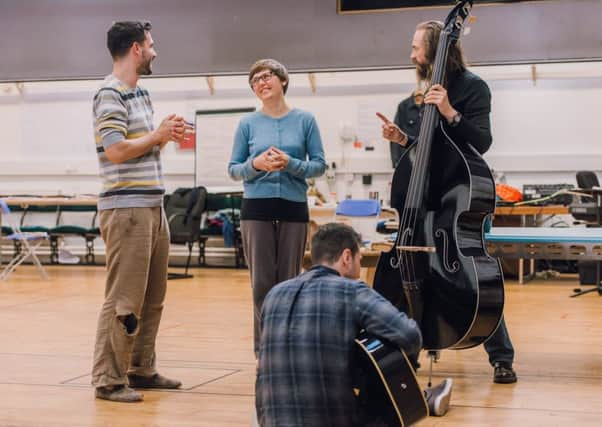Theatre interview: Wils Wilson on directing Cockpit at Edinburgh's Royal Lyceum


This is the basic scenario for the British-Irish writer Bridget Boland’s first play Cockpit, which opened in London in 1948, just three years after the end of the war, and was acclaimed as a great artistic success, although its hard-hitting documentary style was not popular with postwar West End audiences in search of light relief; and the word “scenario” is probably appropriate, since Boland – then aged 35 – was already well known as a screenwriter. In 1940 she scripted the first film version of Patrick Hamilton’s Gaslight, and – almost 30 years on – the hugely successful historical drama Anne Of A Thousand Days.
Since its brief appearance in the late 1940s, though, Cockpit has never had a professional revival in the UK; so Lyceum associate artist Wils Wilson is more than excited to be directing its first full production in almost 70 years, on the theatre’s main stage.
Advertisement
Hide Ad“It’s hard to imagine how bold this must have seemed, back in 1948,” says Wilson, who is best known to Scottish audiences for shows like The Strange Undoing Of Prudencia Hart, and Karine Polwart’s Wind Resistance. “There hadn’t really been many plays about the war at that stage, and people said at the time that it was more like a documentary than any play they had ever seen. I haven’t had to make many decisions about how to use the Lyceum auditorium in a site-specific way, so that it becomes the auditorium in the story, because it’s all in the script – she clearly expected the action to be spreading out into the audience, and some kind of site-specific thing to be going on, even though the phrase hadn’t been invented yet.
“I’m just so proud to be doing this,” adds Wilson, “proud to be doing a play by a woman which is a great script, and which has been lost for so long. It feels like a privilege to be the one who’s reviving it, and of course the Lyceum is just the perfect place for it, because it’s set in that kind of traditional auditorium – and it also helps me to make the transition to working on the main Lyceum stage, which is not the kind of work I’ve done before, because we don’t have to pretend we’re somewhere else, and not in a theatre.”
For this play about the inception and perilous beginnings of modern postwar Europe – now being revived at a time when the West’s postwar institutions are facing an unprecedented range of threats – Wilson has assembled an international company of 12 actors, with roots in Poland, Hungary, Slovenia, Albania, Greece, France and Sweden, as well as England and Scotland. “We thought it was important to get that kind of spectrum,” says Wilson, “so that we didn’t start out by all seeing the story in the same way, through the same British or West European lens. And although it’s not an explicitly feminist play in any way, it has some very strong and interesting female characters. I think Bridget Boland was interested in untold stories, in the little unspoken details of people’s lives, and that often includes women’s lives.”
It’s not known exactly how Boland acquired the detailed understanding of conditions in postwar transit camps that informs Cockpit, although some of the details are similar to those recalled in The Wild Place, a memoir by American writer Kathryn Hulme about her time working for the a refugee relief agency in Poland, which was published in book form a few years after Cockpit first appeared. During the war, Boland herself was in the British women’s army force, the ATS, and spent her time producing plays to entertain the troops.
Whatever the source of Boland’s play, though, Wilson is struck by its intense sense of the fragility of peace in Europe. “The play shows both that co-operation can be achieved, among all these groups, and that, unless you take the greatest care of it, it doesn’t last. You have to remember that in 1948 people still had no idea what postwar Europe would be like, or whether any kind of lasting peace could be built. So I think Bridget Boland meant the play as a kind of warning; and it’s one that’s particularly powerful and interesting, in the light of what’s happening now.”
And Boland herself also saw her plays as containing a warning, although with a slightly different inflection. In 1987, a year before her death, she reflected on her work for a book on contemporary playwrights, detecting a certain “contrariness” in her approach, which she put down to the fact that she was the daughter of an Irish politician, John Pius Boland. She wrote of her journey from screenwriting to theatre, where most writers travel in the opposite direction. She described her refusal to follow the conventional female path into writing on domestic themes, in domestic settings. And she said that however many plays she wrote, she eventually realised that she was always returning to the one she first thought of.
Advertisement
Hide Ad“However different I begin by thinking is the theme of each play,” she wrote, “I find that in the end, every play is saying ‘Belief is dangerous’. And that is the theme of Cockpit.”
*Cockpit is at the Lyceum Theatre, Edinburgh, from 6-28 October.